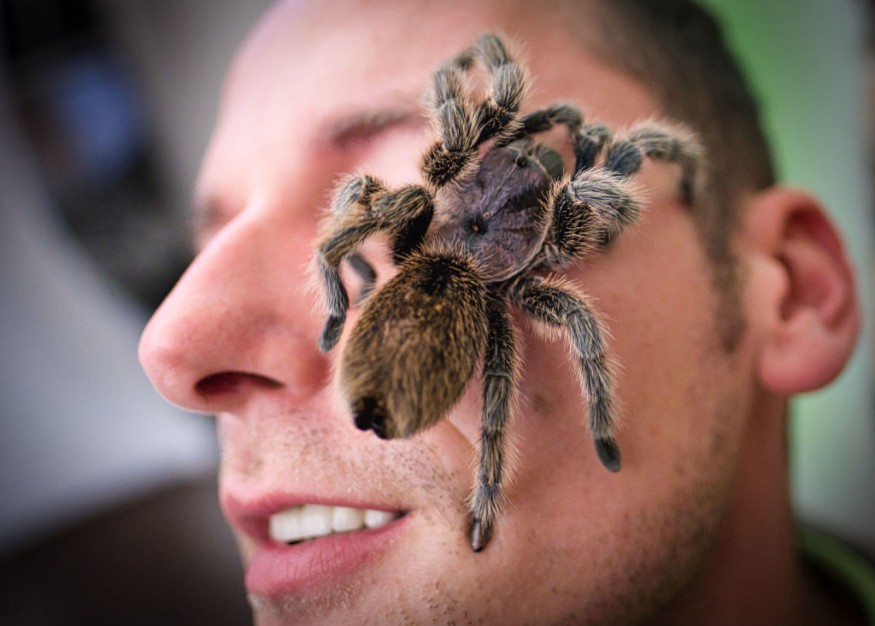A new species that has the ability to kill spiders was discovered. They are worms that could go head-to-head with the massive tarantula. They are called Tarantobelus jeffdanielsi, named after famous actor Jeff Daniels for his role in the classic 1990s film "Arachnophobia."
Tarantobelus jeffdanielsi have an upper hand against tarantulas. They have a natural toxin that could infect the mouth of the spiders, changing their behaviors and halting their digestive process.The organisms could slowly kill tarantulas through starvation.
Surprisingly, the T. jeffdanielsi worms do not consume the body of the spiders, but instead, feed on the bacteria inside. The ability of the worms is what convinced the scientists to name the organism after Daniels' role as the spider-killing physician Ross Jennings.
Tarantobelus jeffdanielsi: Arachnid Killer

A recent biological study was able to discover a novel nematode species that serve as parasites against the terrifying tarantulas. University of California's Department of Nematology expert and author of the study Adler Dillman said in a DailyMail report that the character of Daniels in the 1990s film as a spider killer is fitting for the worm's name.
Tarantobelus jeffdanielsi has the ability to paralize tarantulas. During the infection, the spider's fang-moving organs will be limited, which will eventually influence their overall behavior. The infection will finish off its victims by stopping them from eating and starving them to death.
There are still unknown features about the worms, including the amount of time they are active inside the tarantulas. In a laboratory environment, the T. jeffdanielsi was observed to survive for 11 days. The species reproduce without the need for mating. The unique hermaphrodite anatomy structure of the roundworms are able to give birth to as many as 160 offsprings in a short amount of time.
According to the report, Daniels was surprised when a new species of the nematode was named after him. The Hollywood actor expressed his gratitude for the homage that the scientists presented for his name and the classic film. Daniels was indeed honored to be given the rare opportunity of being a part of the parasitology field.
ALSO READ: Genomes of Roadside Weed Arabidopsis Thaliana Helps Scientist Understand Genetic Mutation
New Parasitic Nematode Accidentally Discovered
Nematodes are one of the most abundant organisms on our planet. However, the T. jeffdanielsi is just second to the only species that are discovered to have similar effects on tarantulas. Over 25,000 species of nematodes are confirmed to exist in Earth's biodiversity, saving themselves a spot on the most widespread animals ever to exist.
The first discovery of the T. jeffdanielsi was unexpected. In 2019, Dillman was consulted by a tarantula breeder regarding an unknown illness observed in some of the spiders. According to the expert, the infection is divided into consecutive phases, including strange walking patterns, loss of appetite, and dysfunction of fang appendages called pedipalps.
Dillman explained that the infection could go on from weeks to months, as tarantulas do not consume foods as often as other animals. Upon infection, a white mass of a substance can be found on the spider's mouth, while no hints of the impact were extracted from the arachnid's stomach and other exteriors.
The new nematodes were also confirmed to eat on bacterias present in the tarantulas, as laboratory examinations revealed that the T. jeffdanielsi eat E. coli. According to Dillman, the reason why only a few parasitic nematodes are discovered is because of the limited studies that revolve around spiders. They have been around for millions of years and have already evolved to infect humans. Every creature that we know can also be infiltrated by a nematode species.
Further studies will follow to learn more about how T. jeffdanielsi could change the behaviors and trigger paralysis in tarantulas, as well as the potential treatments that could deal with the infections. The study was published in The Journal of Parasitology, titled "Tarantobelus Jeffdanielsi N. Sp. (Panagrolaimomorpha; Panagrolaimidae), A Nematode Parasite Of Tarantulas."
Check out more news and information on Biology in Science Times.










